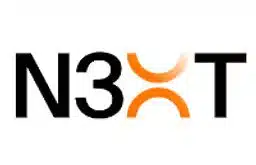At $18 billion in annual sales, vending machines represent the biggest cash market in the country, and now card processors, networks, and wireless operators have it in their cross-hairs. The latest initiative involves a three-way venture in which Velocita Wireless LP, a a data-network spin-off of Cingular Wireless LLC, is routing wireless card transactions from soda machines for transaction-transport specialist TNS Inc. and Pepsi bottlers. So far, Velocita and TNS are handling transactions from about two dozen machines deployed at Hershey Park, an amusement park in Hershey, Pa., and some machines at Pepsi headquarters. This is just the start, says Craig Gosselin, a former American Express Co. executive who is chief marketing and sales officer at Woodbridge, N.J.-based Velocita. He says he expects to be supporting as many as 10,000 vending machines for wireless card payments by the end of 2006. Bottlers and other deployers, he says, see opportunity in the sales lift cards offer, particularly with the ability to move machines from low- to high-potential locations quickly. “It's related to more transactions,” he says. “People expect lift rates to be double digits.” A study published earlier this year by Michael L. Kasavana, a professor at Michigan State University, said credit and debit card acceptance increases same-machine transactions by 15%. Since consumers tend to buy more with cards, multiple-item tickets lift average revenue per sale at these machines by 20% to 50%, he says. Velocita's experience with Pepsi and TNS has been similar, according to Gosselin. “The real golden egg was the ability to increase sales from the machines,” he says. “The consumer's sensitivity to price decreases when he doesn't have to dig for coins.” Indeed, he says, consumers who might balk at a $1 item when it requires coins willingly pony up $2 when they can use a card. Estimates of the total U.S. installed base of machines vary from 5 million to 8 million, including both soda machines and glass-fronted snack-dispensing units. Kasavana's study reports anywhere from 2% to 3% of these machines currently accept cards, leaving a huge potential. Gosselin says the number of U.S. Pepsi-branded machines alone ranges from 600,000 to 800,000, and with Pepsi's support?including installation of card readers on older machines?he says all of them will likely accept cards. “Pepsi has approved the solution,” he says. Timing in the Pepsi case is hard to predict, but Kasavana's report says half of the total installed base will be card-accepting by 2009. Gosselin says bottlers' profitability on soda sales may make them less sensitive to the card interchange and other acceptance costs that daunt other sellers of sub-$5 goods. “There is significant profitability in the vending world that can handle that,” he says. “There's still quite a bit of profit margin left on a can of soda [after interchange]. It's basically syrup and water.” This is especially true, he says, as consumers tend to add more items to the ticket. “With that kind of lift, you can cover those increased [transaction] costs pretty quickly,” he says. Velocita, which at one time handled virtually all e-mail messages sent from BlackBerry devices?and still routes these messages for some 20% of BlackBerry users?routes card transactions across its own cellular network (it maintain 2,400 towers), relying on software provided by TNS. The network transmits transaction data as discrete, encrypted packets, which are de-encrypted and re-assembled for processing. It prices wireless-data service by kilobyte usage. Gosselin will not specify pricing for the Pepsi installations. Still, he says, “Vending machines are low-usage devices. Airtime rates do not turn a business plan positive or negative.”
Check Also
Block Slashes Its Workforce as It Goes All in on AI
Block is cutting its headcount by more than 40%, the company announced late Thursday during …






